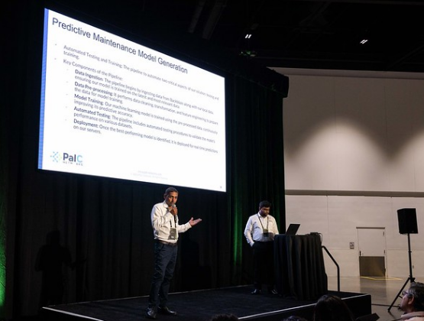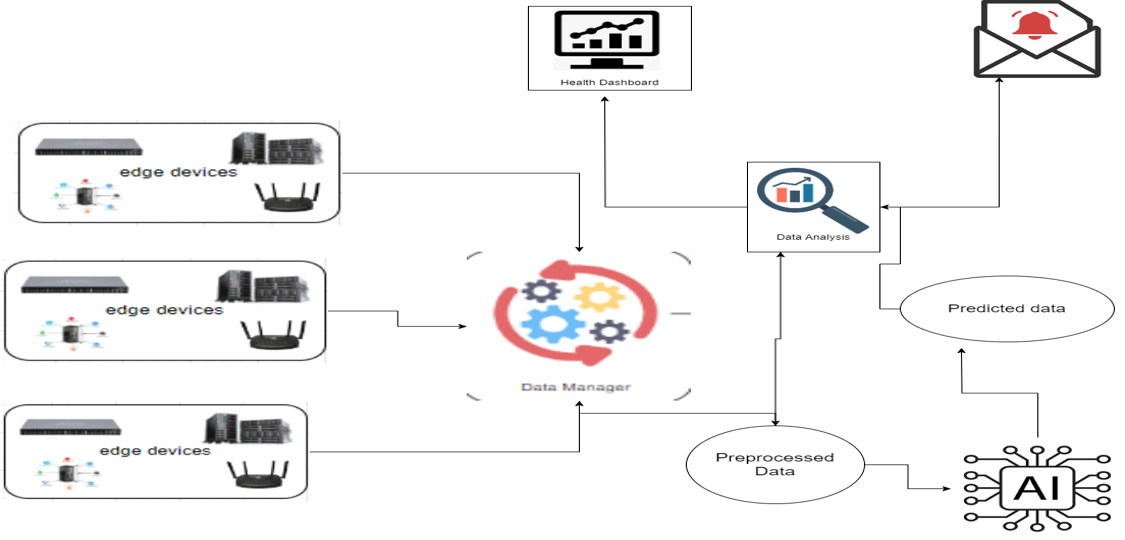Hack2023 3rd Prize: Difference between revisions
No edit summary |
No edit summary |
||
| Line 1: | Line 1: | ||
<p class="left" style="font-size:26px;"> ←''[[ETSI_-_LF_-_OCP_-_MEC_Hackathon_2023|MEC Hackathon 2023]]''<p> | |||
<br> | |||
{{DISPLAYTITLE:<span style="position: absolute; clip: rect(1px 1px 1px 1px); clip: rect(1px, 1px, 1px, 1px);">{{FULLPAGENAME}}</span>}} | {{DISPLAYTITLE:<span style="position: absolute; clip: rect(1px 1px 1px 1px); clip: rect(1px, 1px, 1px, 1px);">{{FULLPAGENAME}}</span>}} | ||
Latest revision as of 10:05, 28 March 2024
3rd Prize Award
Palc Networks
Predictive Maintenance of Hardware
Team
Introduction
In our interconnected world, smart systems have become an integral part of our lives, promising automation, convenience, and security. These systems encompass 5G, IoT, and data centers, playing a pivotal role in our daily routines. However, beneath their veneer of seamless operation lies a critical challenge.
Our mission is to address the heart of this challenge—hardware failures in smart systems. We initiate this mission with a focus on hard drives, recognizing their centrality in data centers and the broader smart ecosystem. The data center's continuous operation depends on the relentless reliability of hard drives, making their potential failures a critical issue
Our solution addresses the challenge of hardware failures in smart systems, commencing with hard drives as the initial focus. The main features of our solution include:
● Machine Learning-Based Predictive Model: We employ a powerful machine learning model based on the One-Class Support Vector Machine (SVM) algorithm. This model excels in identifying anomalies within data, making it ideal for predicting hard drive failures.
● SMART Attributes Analysis: We focus on five key SMART attributes (SMART 5, SMART 187, SMART 188, SMART 197, and SMART 198) to assess hard drive health, providing insights into potential failure risks.
● Imbalanced Data Handling: Our model effectively addresses data imbalance challenges, a common issue in hard drive failure prediction, by distinguishing between operational and failed drives.
● Real-time Predictions: Our solution continuously monitors SMART attributes and provides real-time predictions, enabling proactive maintenance to minimize downtime.
● Resource Optimization: By predicting hard drive failures, we optimize resource allocation, reducing the need for reactive maintenance and minimizing resource wastage.
● Cost Reduction: Proactively replacing failing drives reduces maintenance costs and the risk of data loss.




